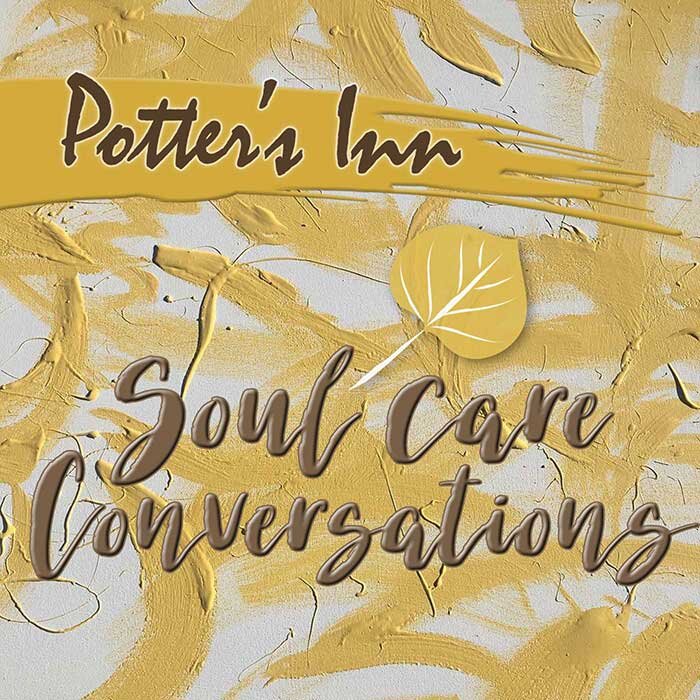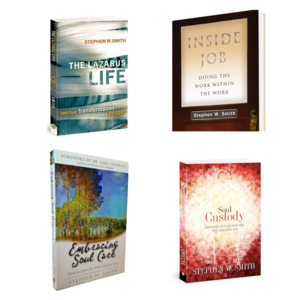Letting Go
by Stephen W. Smith
“There’s a trick to the ‘graceful exit.’ It begins with the vision to recognize when a job, a life stage, or a relationship is over — and let it go. It means leaving what’s over without denying its validity or its past importance to our lives. It involves a sense of future, a belief that every exit line is an entry, that we are moving up, rather than out.”
―Ellen Goodman, Pulitzer Prize-winning writer
I watched my grandson, Bennett intensely this past week as he walked through our home. He’d find something interesting to him—clutch it, grab it, hold on to it fiercely. When he had something of value—something breakable, I’d intervene and try to take it from him. His little, 18 month old, fingers tightly held on to that particular family heirloom. I had to pry his little fingers loose and inevitably there were tears every single time he had to let go of something he wanted.
I am so much like Baby Bennett. How about you? We pick up so much in life and find it extraordinarily difficult to let go. Letting go involves understanding the process of releasing people (family, friends, feelings of betrayal, moving away, death), places (that sense of home and who and what makes home for us), principles (ideas, doctrine, beliefs, convictions, attitudes), and power (sense of control, influence, and belonging). These things can bind us up and hold our hearts hostage for long seasons of our lives. They tether our hearts and tie up our desires in knots that seem impossible to loosen in life. Let’s face it: We all get attached to people, ideas, beliefs, and places in our stories.
We can hold on to hurts, wounds, and bruises from the past and find it terribly difficult to “let go” of them. It somehow is easier to keep licking our wounds than be healed of them. We hold on to idols—political, spiritual, or material. We cling to our opinions, convictions, and beliefs and somehow remain impervious to relaxing, easing up a bit or perhaps, even changing what we believe.
Attachments in the Spiritual Life
It’s called attachments and one of the great and needed exercises in our spiritual journey is learning the process of detaching our souls from unhealthy people, things or beliefs, etc. that keep us stuck and whining inside and whining to others, like Baby Bennett.
We practice letting go through all the stages and phases of our life. The lessons of letting go are always present in this life until we finally surrender our final breath. Perhaps all lessons of letting go and detachment prepare us for that final giving up of our breath.
Those things we must let go of turn more powerful—more real—more frightening, it seems, as we age and “mature”. Who would have ever thought that healthy maturing is learning to let go rather than hold on to something? Meister Eckhart reminds us that “God is not found in the soul by any kind of addition, but by a process of subtraction.” Through letting go and subtraction, we eventually experience an inner peace which often “goes beyond our understanding” as we surrender.
Healthy growth in the spiritual life looks more like subtraction—letting go—rather than it does of hoarding our stuff, be it spiritual, material, or relational.
To recognize that one stage of life, a job, or a position is ending is about awareness and attention. It is about discernment. It is about doing something that appears to be counter-cultural and perhaps counter-intuitive. But, it is taking a step and giving up the seduction of safety for a new beginning--a beginning that is not an ending but a higher plane--a different way of being altogether.
It's my observation that most of us hold on to positions or work too long because in the actual position or work, we find our identity—an identity based on performance, doing and achieving. In my work, I’m afraid that I have been a witness of men, in particular, who hold on to power and position for far, far too long without the awareness of what this gripping and white-knuckling of a title is actually doing to them and to others. The energy to hold on is far greater and more intense than it is to let go.
The Invitation to Let Go
Somewhere along the way, if we are awake and paying attention, we will hear a still, small voice beckoning us: There is something more. There is something different. There is something deeper. There is something higher. We are invited to move up, not to just let go.
"Moving up" is not about grasping on to our positions and name tags which validate us in the world's eyes. Moving up is ascending to a higher consciousness and soul health which says, life is not about positions and status at all. It is about something far deeper and far more meaningful. Unless we learn to practice letting go, we will have hoarded far too much stuff; lengthened our resumes and padded our accounts, but our hearts will be empty and our souls in despair. We can lighten the load--step by step, little by little, and bird by bird.
Can I Let Go of My Age?
I stand on the brink of another decade of life soon. And with the soon arrival of this new decade, I am facing the letting go of some parts or pieces of my health. To accept that there is a letting go allows us to not live divided but to learn “that in acceptance there is peace.” Last year I had two surgeries. In the hospital, I had to let go of so much in order to find health. Among the biggest issues I had to let go of, in that sterile place, was my dignity. Aging invites us into the perplexing frontier of letting go of dignity and a part of our humanity that is so often not explored in church circles. It is a frontier that most folks I listen to do not speak of kindly and warmly.
Letting Go in Parenting
As a parent of adult children, I am finding there are huge wardrobes of emotions I now need to sort through and let go of. I am finding that parenting adult children is far, far, far more challenging than parenting preschoolers. I have to let go of my opinions; my ‘right’ to have the final word; my opinions, because I find myself deeply wanting to be asked. I sometimes find myself fantasizing that I’d be asked something like this: ‘Dad, what do you think about this or that?’ Often, I’m not asked.
In my letting go, I find myself crying and wailing like Baby Bennett. And like Jacob, I walk away from these wrestling matches with physical, emotional, and relational limps sometimes. Often I am exhausted in my wrestling with God about the many things that tether my heart, rather than experiencing the freedom in letting go.
Hard to Let Go
It’s hard work to let go. Ask Moses, Peter, Paul, Mary the mother of Jesus, or really—any character in the Scriptures. Like it or not, letting go is one of the big scholastic courses you sign up for in being born. Baby Bennett has already enrolled in being a life long learner in this kind of schooling. Though I exceed his age by more than three score years, I must admit, I am a remedial learner in the school of letting go. Are you as well?
I simply want my way. I want my insights to be valued. I want people to ask for my opinion. I want my observations to be cherished.
Isn’t it interesting that when a person dies, we often hear, “May they rest in peace.” Their death is that portal to a peace that we hope for them. Letting go is practicing for our death, and it is the death we must die to live this peace promised us both in this world and the next.
Breath and Breathing as a Teacher of Letting Go
I am finding that noticing my breathing teaches me much about letting go. These days in spiritual direction, I almost always ask for us to just breathe together—to take several deep and cleansing breaths and to get into sync in our breathing before we begin talking. We let go of our prior busyness of the day. We let go of inner pre-occupations to just show up and sit together in a session.
But I also practice letting go of my breath these days, in conscious practice that every time I let go of my breath I am practicing letting go of my final breath that will happen to me—to all of us one day. My own spiritual director reminds me that to practice letting your breath go—to release those big, long held breaths is a good way to practice not only letting go of thoughts and toxic emotions, but it allows me to practice my dying—my final letting go…letting go of my final breath on earth. I find myself trying to remember Jesus, Himself, when needing to let go. There on that rugged cross and dying, we read he breathed his last breath and said, “Father, into your hands I commit my Spirit.” As Henri Nouwen reminds us in the quote I’ve included in Soul Care Ezine, the trapeze artist free falls into the hands of trust and love. Jesus let go, while on the cross and surrendered his life into good hands of his Father. I can do the same. Part of my re-education and learning is knowing and trusting the good, good hands of my own Father. For many of us, this requires a “re-imaging” of the God who really is rather than a narrative about God that we have believed and are in need of letting of now. I’ve had to “let go” of an image of God that isn’t really true at all—one that I amassed in a rigged, religious upbringing. The best invitation in life is this: to let go of all the false notions and narratives of God and to be “re-discipled” into the God is really is.
Blessings in the Letting Go!
Steve





